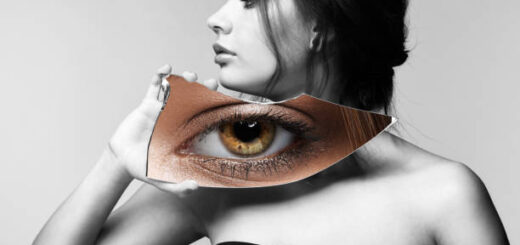A Subtle New Way to Identify a Narcissist
Eyes (and eyebrows) are blessed with it
You may be pretty skilled at determining who’s a person who is a narcissist. Suppose your typical coffee service is off for the day, and a new employee prepares the daily breakfast to fuel your morning. Instead of taking note of your request, they nod and smugly pour the reverse of what you wanted while giving the impression that they’re absolute experts in their field. Even though this is a minor issue rather than a disaster, you are still annoyed over their indifference to a simple request.
Thinking about the incident may remind you of others whose self-importance and need to pay attention results in them failing to consider your concerns. The consultant who comes into your office or is a replacement for your regular fitness instructor but they give little thought to the fact they’re supposed for you to assist you, not to impress you.
As a sign of Narcissism, extreme self-absorption and an outward display that shows off might seem like obvious indications of their majesty. There are additional but less apparent indications that may aid you in avoiding being in control of a person who is a narcissist.
Facial Cues as Guides to Personality
According to the University Helsinki’s Ville Harjunen and colleagues (2023) According to Ville Harjunen and colleagues (2023), there’s plenty you can discover about the character of the narcissist if you provide them with negative comments about their actions. What if, in any of the above instances, you informed the person that you were not happy about their behavior? You may be hesitant to confront them out of fear of appearing rude. But, it could be precisely that conversation that will help you to judge the person you’re working with.
Harjunen et al. studied whether the subtle signs that a narcissist’s facial muscles would react to self-reported emotions weren’t when they were exposed to negative feedback. The researchers point out that nobody likes negative reviews, especially in public settings. But for those engrossed in Narcissism and self-esteem, negative criticism should be particularly harsh and break their bubble of grandeur.
However, due to its harsh nature, negative feedback isn’t always reflected in a person with Narcissism’s self-report regarding the consequences of not meeting their high expectations. Initial studies on this issue indicated that those high in Narcissism are aggressive and angry when confronted in public with the consequences of their failure; however, later studies prove the exact opposite. To help clarify the problem, U. Helsinki researchers decided to utilize psychophysiological indicators of facial reactions “that are less susceptible to voluntary control or biased reporting.”
Testing Reactions to Criticism as Shown in the Face
Utilizing the technique called electromyography (EMG), Harjunen and his coworkers assessed the reactivity of facial muscles in their group of 57 people (18 up to the age of 44 with an average age of 26) after exposure to an unfavorable condition. In this instance, the failure was created by requiring participants to answer an array of difficult and, in some cases, impossible questions based on an experiment in recall task (recalling specific details from a story). In the case of failure, the questions in the story were straightforward and did not fail. Then was completed, the researcher read an outline that gave negative or neutral feedback. Failure and non-failure scenarios were alternated between the participants.
The EMGs were able to detect the reactions displayed in those who have “smile” muscles (zygomaticus major) which are the muscles that are responsible for opening and closing the eyes (orbicularis Oculi) and the muscles of the eyebrow (corrugator supercilia). To determine Narcissism, the researchers employed an established personality test. Participants were also asked to provide their ratings of their moods during the experimental induction.
Analyses based on the differences between individuals throughout the experiment confirmed the hypothesis that there was a disconnection from EMG response and explicit evaluation of emotional states. Everyone displayed the same level of negative emotion after receiving feedback indicating they were failing. However, the individuals with high levels of Narcissism showed facial muscles similar to the emotion associated with frustration and anger.
Based on the assumption that the majority of people imagine themselves as positive regardless of whether they are selfish or otherwise, this well-controlled study found that for those with a high level of Narcissism, their response to danger manifests with distinct patterns of facial stimulation as well as a higher usage of “defensive coping strategies” (p. 14). That is, someone with a high level of Narcissism might claim that negative feedback does not influence them, but their appearance will suggest that.
Using Facial Cues to Spot Narcissists in Your Own Life
This U. Helsinki study provides interesting insights into narcissists’ inner personalities when challenged by someone else. They can appear cool and calm when you highlight their weaknesses. In the case of the confident but uninformed coffee server, when you inform them that you’re unhappy with their services, this could be necessary to look at their facial expressions to find out what impact your words have. The EMGs of people who are highly on the narcissism spectrum showed increased reactivity of the eye socket and forehead muscles. This means you’ll get a sarcastic glance, if even short when you point out their weaknesses.
While practicing your narcissism-sensing abilities could provide a degree of enjoyment even if the person you’re with will not be an important person in the course of your day, this can take on greater importance when trying to determine whether you should engage in a romantic relationship with someone who appears to exhibit obvious narcissistic tendencies. Before you conclude that their appearance shows an inflated ego, look at how they react when situations don’t go your way. If they show an outward expression of anger but have no emotion on their faces, likely, they’re not engaging in the “defensive coping” of the self-deprecating narcissist.



